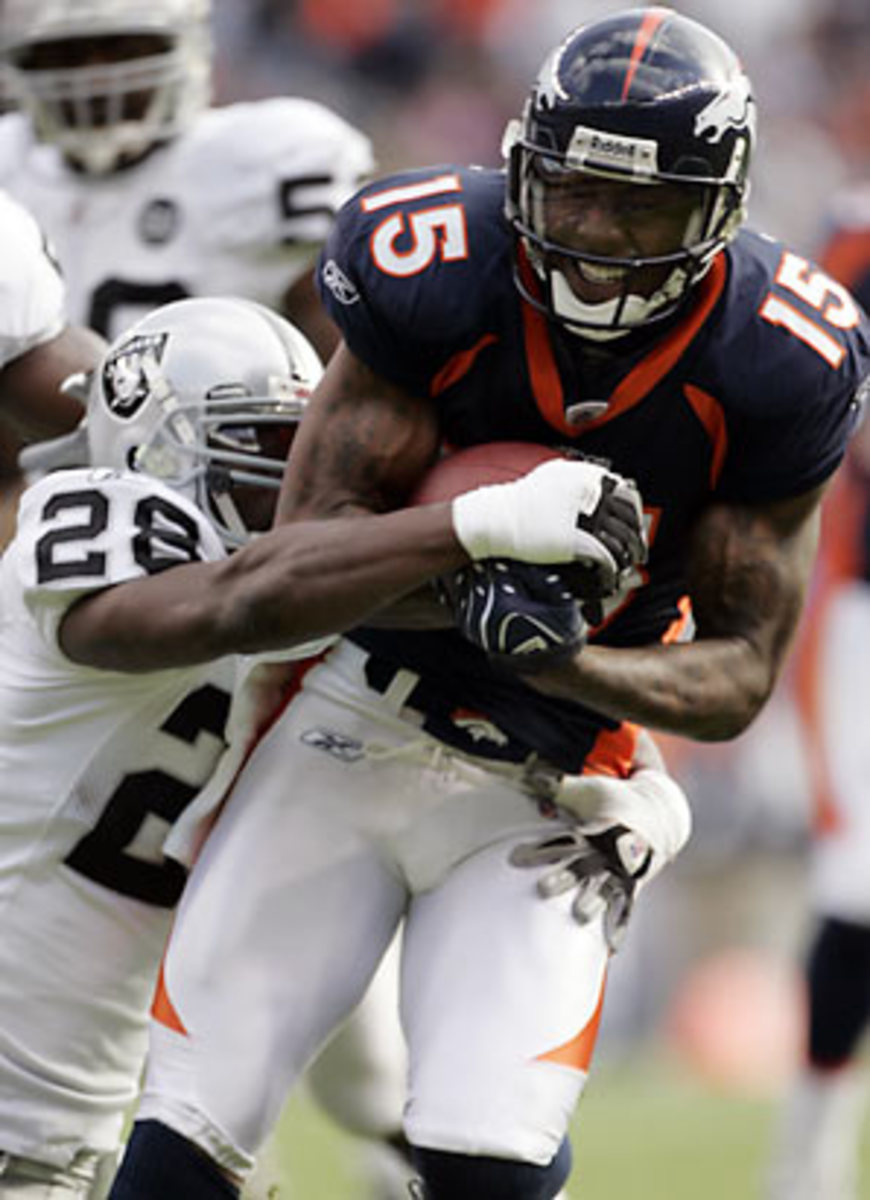
League needs more effective solution to curb off-field behavior
Early on in my NFL career, I attended a mandatory seminar on player behavior. Just as the hour-long ordeal, which focused primarily on domestic abuse, was about to wrap, the program moderator opened the floor for questions. I wondered what questions anyone could possibly have after sitting through a demonstration like that. Everyone in the team meeting room was an adult and, by that point in his life, should have garnered a pretty firm understanding of right versus wrong. The presentation's main point essentially boiled down to: "Don't ever hit a woman. Ever." It seemed simple enough to me. Those who hadn't been born with that innate knowledge surely soaked it up by kindergarten.
Yet surprisingly, someone asked a question.
"That's all well and good," said one of our best players, "but what happens if she hits you first?"
As a young player in the league, I thought the mandatory handful of events aimed at educating players on how to live their personal lives were unnecessary. As soon as I heard one of our veteran leaders ask that question, though, I knew beyond a shadow of a doubt the meetings were absolutely necessary, if only to answer these questions and place these issues at the forefront of players' minds.
Lately, Denver receiver Brandon Marshall and Atlanta offensive tackle Quinn Ojinnaka have done their best to make sure player behavior, particularly that of an aggressive nature, remains at the forefront of everyone's mind. A recent ESPN Outside the Lines feature delved into Marshall's oft-troubled relationship with a former girlfriend, while Ojinnaka made news for simple battery. The incidents were both of the domestic variety, but could just as easily have been battery or assault stemming from a bar or nightclub fight. Heck, they could just as easily have occurred outside the white lines, as Carolina Panthers star wide receiver Steve Smith can attest.
NFL players, as a general rule, are some of the most aggressive men in our society. They typically possess mindsets and temperaments that allow them to survive and thrive in a world of daily collisions. They almost have to enjoy inflicting punishment on other individuals in order to succeed in the league. For years, their football educations have revolved around standing up to challenges and refusing to shy away from confrontations, and for a small but still significant number of players, ignoring that ingrained knowledge proves difficult in off-the-field and social situations.
At this point, the NFL can't do much more to educate players and help them harness their aggression when they are outside team facilities. Later this June the league will host a rookie symposium which every drafted player must attend. The intent: to prepare the assembled for the situations they will face as they enter the league and how they can best react to them. After that, each team must attend the aforementioned seminars on a regular, mandatory basis. Call it a continuing education.
Veteran players who know right from wrong and have avoided incident throughout their NFL careers often complain about the mandatory nature of these meetings. Yet there are still enough incidents league-wide, and questions like the one our star player asked, to convince me and others the seminars are a very good thing. In that instance, the seminar leader told our vet it's never OK to hit a woman or retaliate in any way, even if she instigates the physical contact, that in that situation it's best to just leave the house so both sides can cool off.
Commissioner Roger Goodell knows not all players involved in these types of incidents are "thugs" or "hoodlums." That's why he examines every case that crosses his desk on a case-by-case basis. Fans and patrons constantly goad NFL players, and it's easier said than done to simply swallow one's pride and walk away from someone shouting demeaning things. Easy or not, though, that is exactly what players need to do. The league, meanwhile, needs to continue finding ways to help players channel their aggressive tendencies.
I'm not sure what else the league can do for players who still find themselves in precarious situations. One more seminar won't make a difference. Anger management classes might, but that'd be a reactive solution, not a proactive one. The only genuine deterrent is for NFL clubs and commissioner Goodell to continue to be as harsh as possible with fines and suspensions for players who are involved in criminal behavior, especially of a physical or violent nature. If teaching seminars and symposiums don't do the trick, maybe increasing the threat of lost income, playing time and reputation would. It won't solve every problem or prevent any future issues, but it would place behavioral issues back where they belong: at the forefront of the players' minds.





